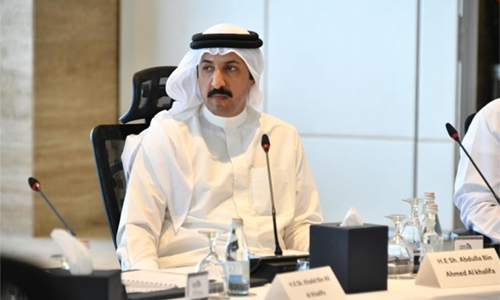‘Future government strategies require solid scientific base’
The Undersecretary of the Ministry of Foreign Affairs for International Affairs and Chairman of the Board of Trustees at the Bahrain Centre for Strategic, International and Energy Studies (Derasat), Dr Shaikh Abdulla bin Ahmed Al Khalifa stressed that future strategies for government action require an ambitious scientific and knowledge base, as well as the development of corporate governance practices and tools to achieve sustainable development plans, and as a fundamental standard for progress.
This came during the participation of Dr Shaikh Abdulla in the fourth edition of BIPA-organised Round-Table titled “methods to overcome government challenges”. The Undersecretary highlighted that uniting efforts to accumulate knowledge, evaluate successful experiences, and build national research capabilities, is a common goal for Government Action Plan, which is in accordance with the highest standards of quality and excellence, in a stimulating environment for growth, and in line with the Bahrain Economic Vision 2030.
He also praised the Round-Table initiative organised by BIPA, aimed at finding appropriate solutions to government challenges, based on scientific methodologies that would contribute to raising the efficiency and effectiveness of the public sector to achieve the aspirations of the citizens.
He also noted that the Round-Table addressed the most important challenges faced by various vital sectors in the Kingdom, as well as the most prominent mechanisms proposed to solve them, in addition to developing currently-adopted administrative trends, based on new types of strategic thinking.
He also added that the recommendations and resolutions of this discussion will be a valuable addition for the Government Action Plan and will help in strengthening ties with the private sector. He also underlined the need to learn from international administrative experiences and the importance of working to find local practices to suit the recent developments in the Kingdom. He also highlighted that the national qualifications are capable of producing innovative solutions.
Dr Shaikh Abdulla also discussed the role of technology in enhancing the development process, calling it one of the fundamental bases for building the future and stressed the importance of benefiting from research outcomes.
Related Posts

